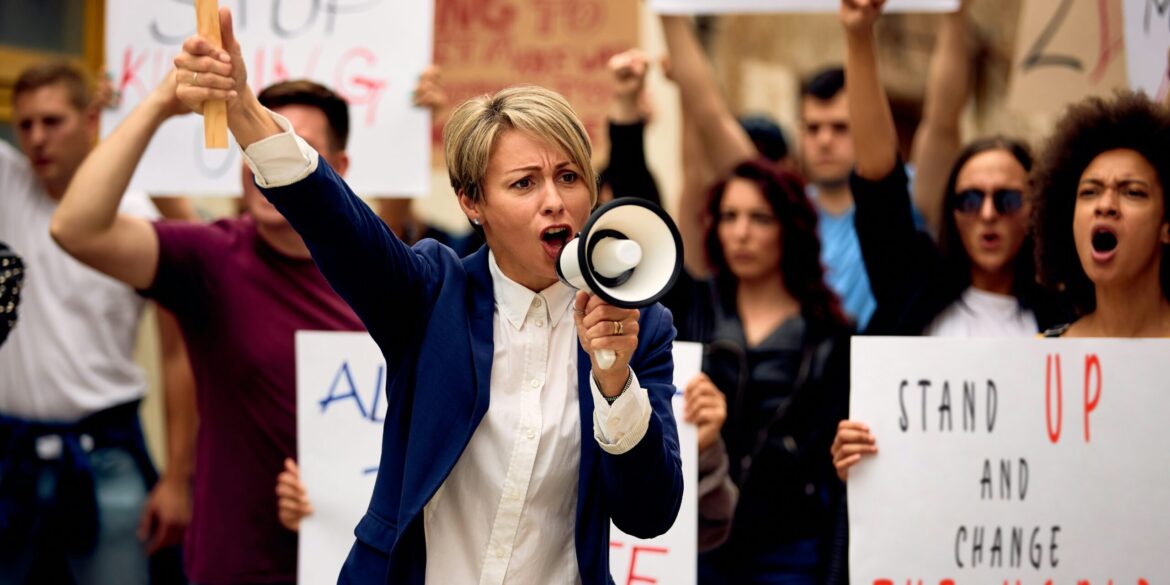Los Angeles witnessed a powerful display of solidarity and activism as thousands of workers, immigrants, and community supporters gathered for May Day rallies across the city. Organized by the Los Angeles May Day Coalition, the demonstrations took place at key locations including the intersection of West Olympic Boulevard and South Figueroa Street, as well as MacArthur Park. The participants marched purposefully toward the Metropolitan Detention Center, delivering a resounding message about the urgent need for labor rights reforms and immigrant protections.
A Tradition of Advocacy and Solidarity
May Day, also known as International Workers’ Day, has long been a symbol of labor activism worldwide. In Los Angeles, the tradition of May Day rallies is deeply rooted in the city’s history of labor movements and immigrant struggles. The 2025 rallies were no exception, reflecting ongoing challenges faced by workers in a rapidly changing economic and political landscape.
The Los Angeles May Day Coalition, a longstanding alliance of labor unions, immigrant rights groups, and social justice organizations, spearheaded the coordination of this year’s events. Their goal was to highlight critical issues affecting low-wage workers, undocumented immigrants, and marginalized communities.
Key Issues on the Agenda
Participants at the rallies called for comprehensive policy reforms addressing several pressing concerns:
Fair Wages and Worker Protections: Advocates demanded an increase in minimum wage standards and stronger enforcement of labor laws, particularly for workers in the gig economy and service sectors who often face exploitation.
Immigrant Rights: The marches emphasized the plight of undocumented immigrants, calling for pathways to citizenship, protection from deportation, and the abolition of immigrant detention centers. The march to the Metropolitan Detention Center was a symbolic gesture highlighting opposition to mass incarceration of immigrants.
Safe Working Conditions: In the wake of the COVID-19 pandemic and ongoing public health concerns, workers called for improved workplace safety standards and access to healthcare benefits.
Union Organizing: The rallies underscored the importance of unionization as a means for workers to gain collective bargaining power and fair treatment.
Diverse Participation and Community Engagement
The 2025 May Day rallies brought together a diverse coalition of participants spanning various ethnicities, age groups, and industries. Many attendees were Latino immigrants, reflecting Los Angeles’s demographic composition and the central role of immigrant labor in the city’s economy.
Union members from sectors such as hospitality, construction, healthcare, and education marched alongside community activists, students, and faith leaders. Local musicians and speakers energized the crowds with performances and speeches underscoring themes of justice, dignity, and empowerment.
Social media buzzed with live updates, images, and personal stories shared by participants, amplifying the reach of the rallies beyond the physical gatherings.
The March to the Metropolitan Detention Center
A defining moment of the day was the march to the Metropolitan Detention Center (MDC), a federal facility often criticized by immigrant rights advocates for its detention practices. Demonstrators staged peaceful protests outside the center, calling attention to the conditions faced by detainees and demanding the closure of immigrant detention facilities nationwide.
Speakers at the MDC site included family members of detainees, legal advocates, and elected officials who pledged to continue fighting for humane immigration policies.
City and Official Responses
Los Angeles city officials acknowledged the importance of May Day as a platform for voicing worker and immigrant concerns. Mayor Karen Bass issued a statement recognizing the contributions of immigrant workers and reiterating the city’s commitment to advancing labor rights and immigrant protections.
The Los Angeles Police Department maintained a visible but non-confrontational presence during the rallies, facilitating safe passage and ensuring public order.
Historical and Contemporary Context
The 2025 May Day rallies are part of a broader continuum of labor and immigrant rights activism in Los Angeles. The city’s history is marked by significant movements, from the 1930s labor strikes to the 2006 immigrant rights marches that drew hundreds of thousands.
In recent years, Los Angeles has seen progressive policy developments, including minimum wage increases and sanctuary city ordinances. However, economic inequality, wage stagnation, and immigration enforcement remain contentious issues.
The rallies serve as a reminder of the ongoing struggle to secure equitable treatment for all workers and immigrants, especially in an era marked by economic uncertainty and shifting political priorities.
The Role of Labor Unions and Advocacy Groups
Labor unions played a pivotal role in organizing and mobilizing participants. The Service Employees International Union (SEIU), United Food and Commercial Workers (UFCW), and other prominent unions were actively involved in outreach and coordination efforts.
Advocacy organizations such as the Coalition for Humane Immigrant Rights (CHIRLA) and the National Day Laborer Organizing Network (NDLON) brought expertise and grassroots networks to the forefront, helping ensure that the rallies addressed both local and national concerns.
Looking Forward: Sustaining Momentum
The 2025 May Day rallies concluded with calls to maintain pressure on policymakers and continue grassroots organizing throughout the year. Organizers emphasized the need for ongoing community engagement, voter mobilization, and coalition-building to translate protest energy into tangible legislative change.
Upcoming initiatives include efforts to expand worker protections in emerging industries, campaigns to reform immigration detention, and educational programs to empower young activists.
Conclusion
The May Day rallies in Los Angeles on May 1, 2025, embodied a powerful testament to the city’s vibrant culture of resistance and advocacy. By uniting workers, immigrants, and allies in a shared demand for justice and dignity, the demonstrations reaffirmed Los Angeles’s role as a leading center for social justice activism.
As economic and political landscapes continue to evolve, the spirit and demands voiced on May Day will likely remain a driving force shaping the future of labor and immigrant rights in the city and beyond.

